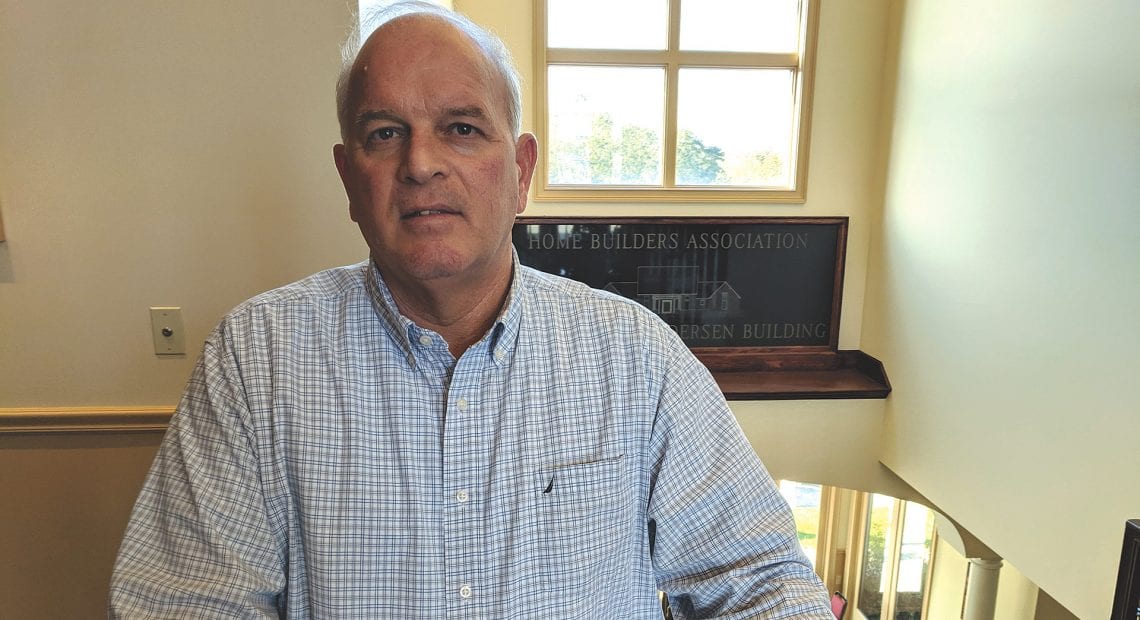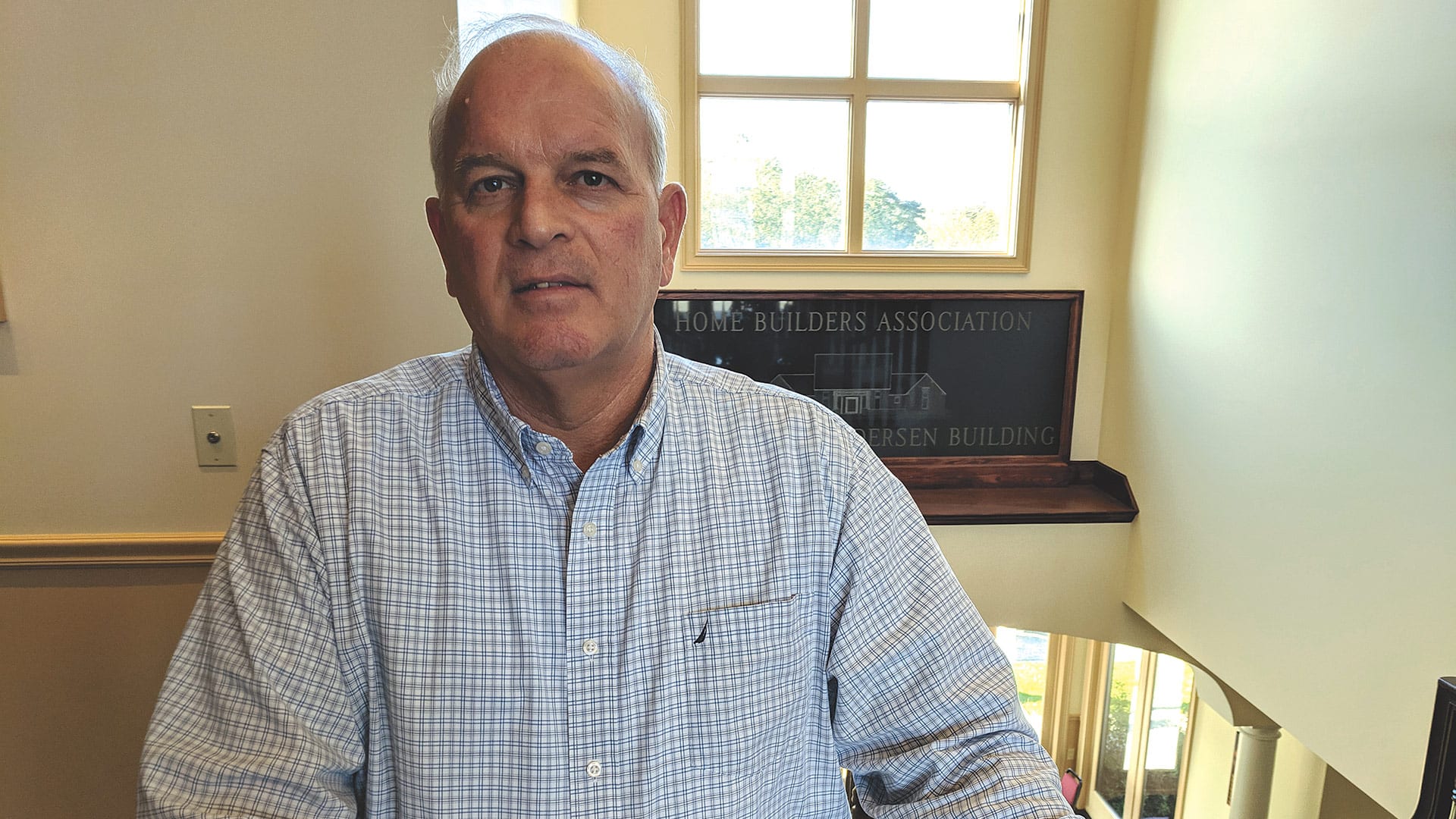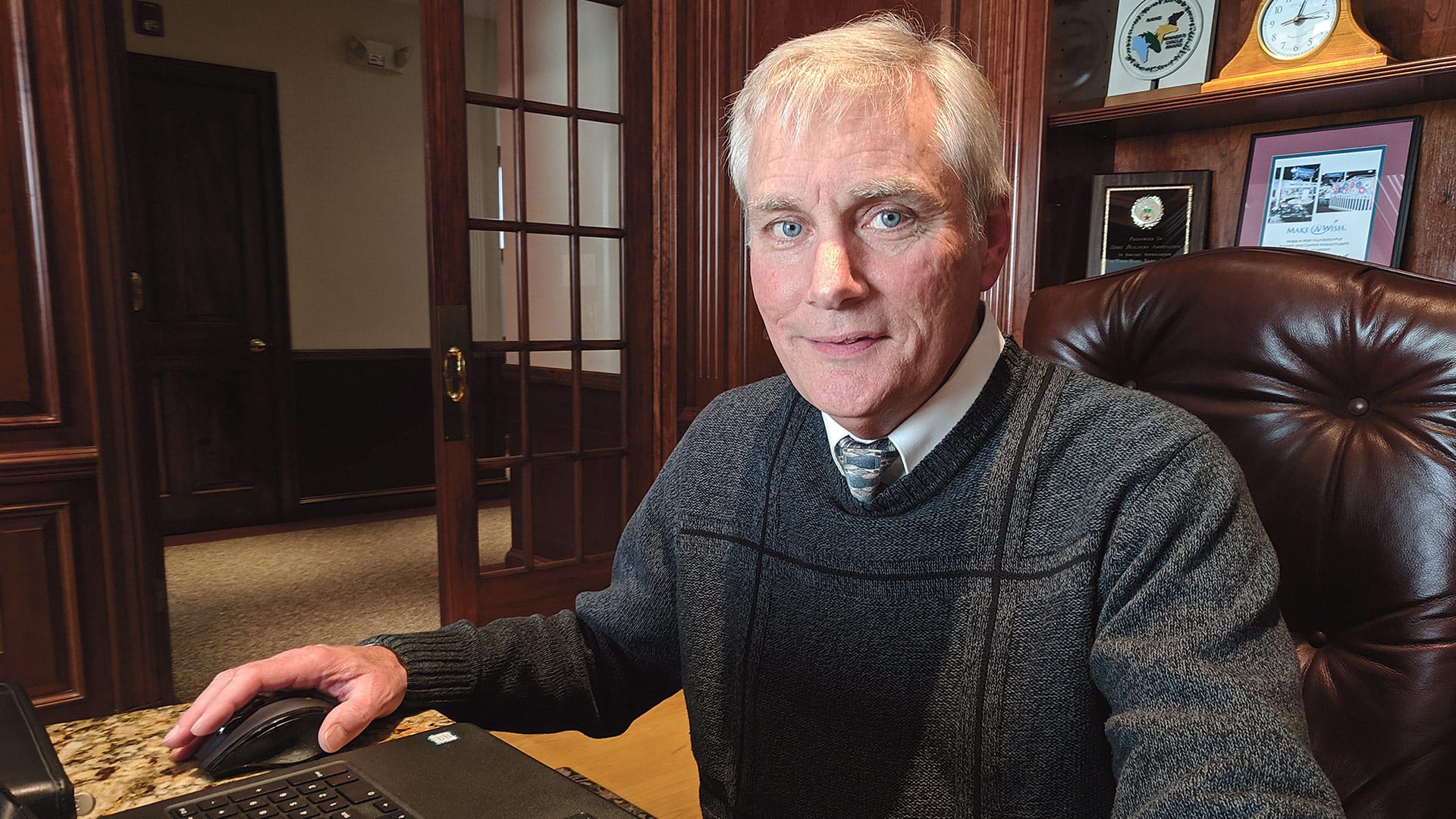Professional Development
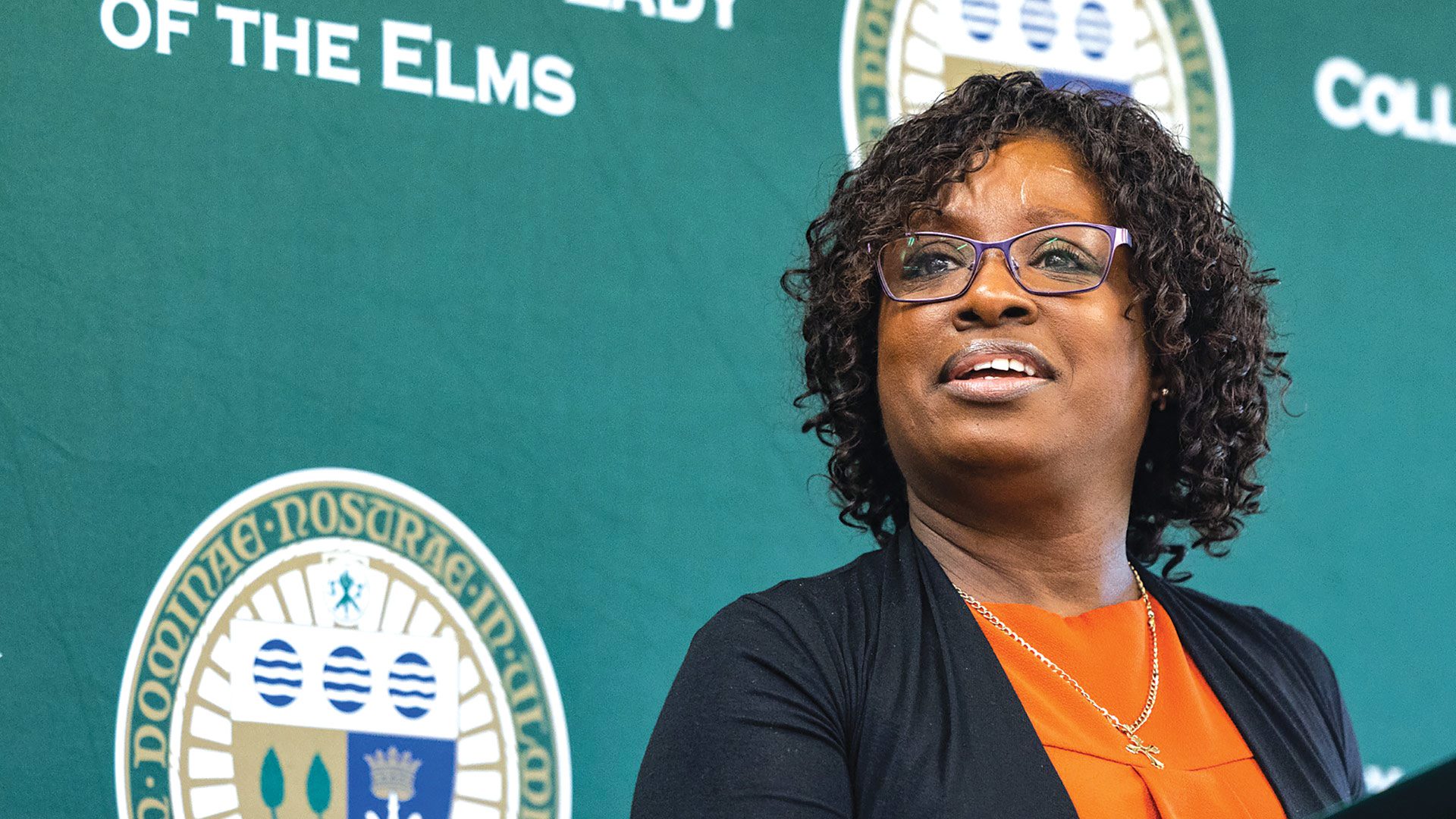
After getting some help rising out of poverty, Kimberly Quinonez is now in the business of helping others.
Kimberly Quinonez says she’s always had a passion for helping people, and a desire to make doing so a career.
But for most of her life, she was the one needing help.
A native of South Carolina, she grew up in a life of poverty, addiction, homelessness, and a sixth-grade education, and was desperate for a way out — and up — from all that.
After getting clean and moving to Western Mass., she completed her high-school equivalency at Springfield Technical Community College (STCC) at age 43 and enrolled in the school’s two-year associate-degree program in social work. And while still earning that high-school equivalency, she told BusinessWest, she met Wally Soufane, social work specialist at Elms College, who became a mentor and essentially put her on a path to the bachelor’s degree-completion program offered at the school.
Completing that program, and the associate degree before that, were stern challenges, she said, noting that there were several times when she wanted to quit because the combination of life and school seemed like too much. But she persevered, with help (there’s that word again) from Soufane and others who helped provide her with the will to carry on.
“I kept on and kept on; I had some discouraging moments, but I just couldn’t give up because this was something that I really wanted for myself,” she said. “And I really like helping people.”
This past May, she completed that program and was among the speakers at Elms’ commencement ceremonies, her story riveting those in attendance. Today, she’s employed at the Hampden County Sheriff’s Department as a care coordinator and counselor, while also working toward a master’s degree in social work at Springfield College.
“If we accept a student, our job is to support them. If they’re going to do the work, we need to support them as best we can and help them be successful, and we do that; our retention rates, over 80%, are very good, and our graduation rates, in the mid-60s, are very good.”
Her story touches on many elements of the bachelor’s degree-completion programs at Elms, said Walter Breau, executive dean of the college’s Kirley School of Continuing Education — everything from its ability to help non-traditional students set and achieve goals to the way its administrators and instructors work with students to help them overcome challenges and complete their degrees.
“If we accept a student, our job is to support them,” he went on. “If they’re going to do the work, we need to support them as best we can and help them be successful, and we do that; our retention rates, over 80%, are very good, and our graduation rates, in the mid-60s, are very good.”
Social work is one of the more popular programs at the Kirley School, said Breau, adding that others, many of them offered online, include computer information technology and security (CITS), computer science, healthcare management, speech-language pathology assistant, management and marketing, psychology, and RN-BSN.
Overall, there are now roughly 200 individuals enrolled in continuing-education (CE) programs at Elms, roughly 20% of the undergraduate population, said Breau, a veteran administrator at the college who recently took the helm at the Kirley School, noting that the goal is to grow enrollment to 300 and beyond.
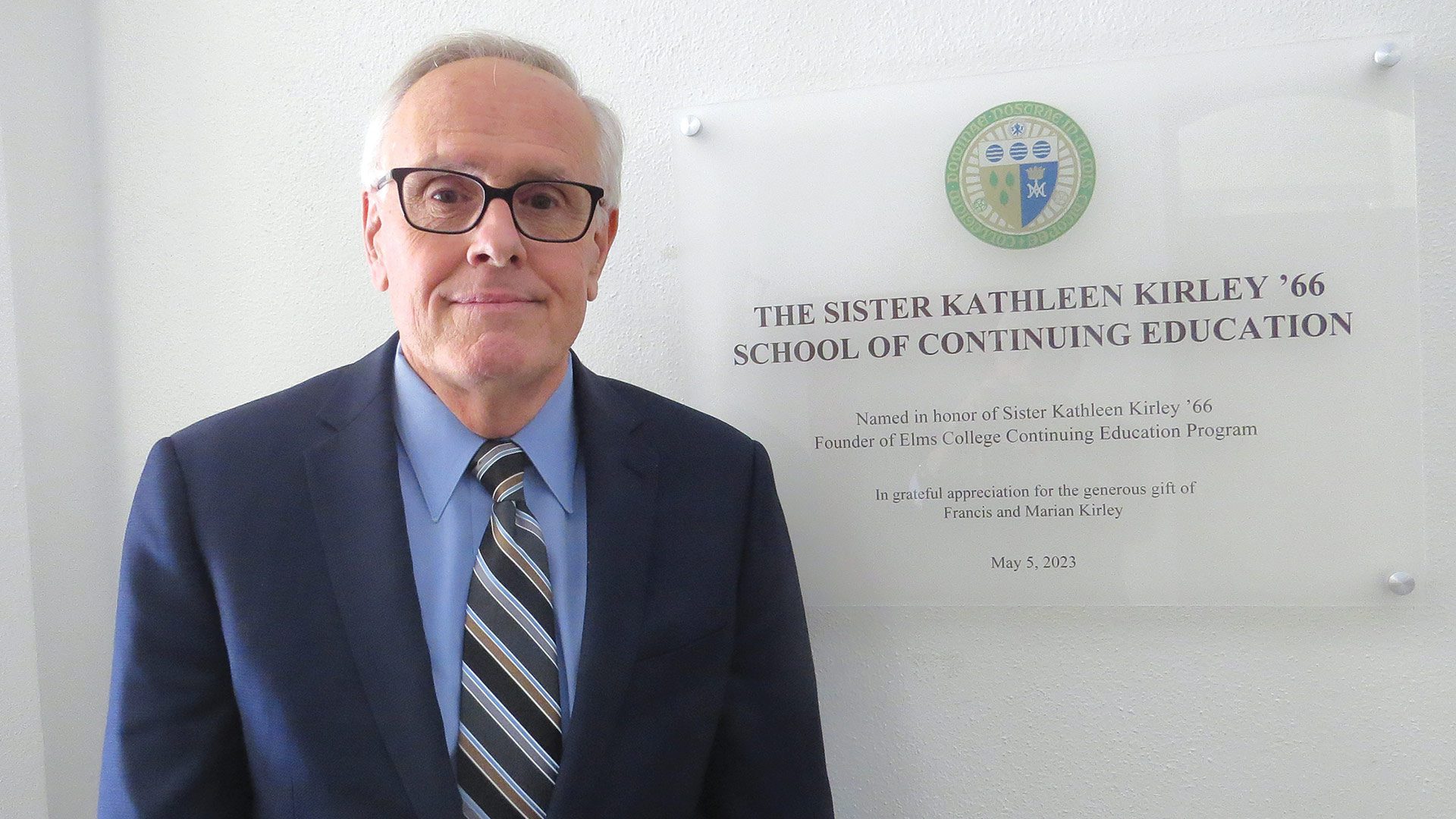
Walter Breau says the Kirley School is focused on not only enrolling people in degree programs, but seeing them through to the finish line.
Staff Photo
And there is certainly some momentum with regard to enrollment, as the region’s community colleges, bolstered by the MassReconnect Program, which provides free tuition to those over age 25, are seeing their first real rise in enrollment since well before the pandemic.
For this issue, BusinessWest continues its series spotlighting professional-development programs across the region with a visit to the Kirley School and an examination of how it can change lives, like Quinonez’s, in a profound way.
Grade Expectations
This past May, Elms’ School of Continuing Education was officially renamed the Sister Kathleen Kirley ’66 School of Continuing Education, following a donation to the school in her honor.
And the new name is quite fitting, said Breau, noting that Sr. Kathleen, a member of the Sisters of St. Joseph, now retired from the school, was director of Continuing Education at Elms from 1977 to 1990 and served as the dean of Continuing Education and Graduate Studies from 1990 to 1998.
“If you look at the mission of the Sisters of St. Joseph, their goal is to serve the community,” he noted. “And at some point, instead of just having the traditional programs where you come to campus Monday through Friday, they understood that there was a population of individuals we could serve in a different way.”
That was the genesis of continuing education at Elms, he said, adding that, for more than a half-century now, the school has continued to serve non-traditional students with a variety of programs aimed at helping individuals not only earn degrees, but forge careers in growing fields.
These include collaborations with the region’s community colleges, whereby students can earn bachelor’s degrees on the community-college campuses. Indeed, there are social work programs at Asnuntuck Community College, Berkshire Community College, Greenfield Community College, and Springfield Technical Community College, said Breau, noting that many who earn their bachelor’s degrees at those locations, and on the Elms campus as well, go on to earn a master’s degree and become a licensed clinical social worker in the Bay State.
“If you’re a computer science major at STCC and you’re looking to earn your bachelor’s, we make sure there’s no loss of credits. You finish at STCC in May, and you start with us in August in the computer science bachelor’s program. It’s just another sign to students that we’ve deliberately thought about how to make you successful.”
“We have many of our students at STCC, Asnuntuck, and here on campus go forward and get their MSW,” he said, adding that there is “more than enough demand” for individuals who have those credentials.
Other popular programs include RN-BSN and speech-language pathology assistant, he said, adding that there is growing demand in both fields, and especially nursing.
Elms has articulation agreements, more than 50 in all, with the area community colleges, Breau explained, noting that these partnerships help create what he called “seamless pathways” as individuals take the credits they earned while completing an associate degree and apply them toward a bachelor’s degree at Elms.
“If you’re a computer science major at STCC and you’re looking to earn your bachelor’s, we make sure there’s no loss of credits,” he noted. “You finish at STCC in May, and you start with us in August in the computer science bachelor’s program. It’s just another sign to students that we’ve deliberately thought about how to make you successful.”
There are many such signs, he went on, adding that one point of emphasis at the Kirley School is to not simply merely get people enrolled in the various degree programs, but to see them through to completion.
And completion can be challenging, Breau said, noting that more than 75% of those enrolled in CE programs at Elms are 25 and older, which means they’re likely dealing with a number of life matters, such as work and family.
“They’re an older population who have decided, for one reason or another, that they want to fit in coursework with work, family, and other obligations,” he explained. “Our goal is first to show that it’s possible, it’s accessible, it’s affordable. People can see the end point even before they start.”
After showing it’s possible, the school then helps make it possible, with everything from flexible start dates to initiatives to help them step back in if they happen to hit pause for whatever reason, to many forms of student support, such as a 24-hour tutoring program.
Quinonez has seen these efforts to provide support up close and personal.
She said those at Elms were constantly supporting and “checking up on me” while she was in school. And they still do, months after she graduated.
“They still reach out to me today and say, ‘Kimberly, how’s it going?’” she told BusinessWest. “Elms changed me; I grew up and matured a lot — Elms College became my parents.”
Bottom Line
Today, Quinonez is working toward another degree at Springfield College and expects to complete that work in May. She said her time at Elms didn’t just help her find a career — instead of a job — but it instilled in her the desire to continue to reach higher and position herself to help people in more ways.
That’s what Sr. Kathleen Kirley had in mind when she laid the groundwork for today’s highly successful CE department at Elms.
The program has provided pathways to success and opened doors for people like Quinonez, who just needed a little help. And now they can help others.




